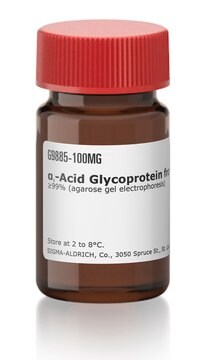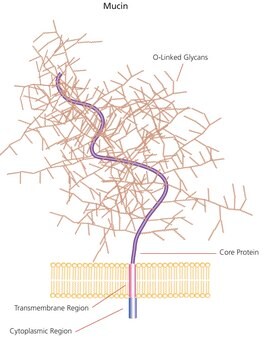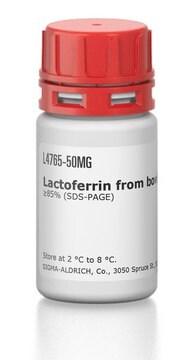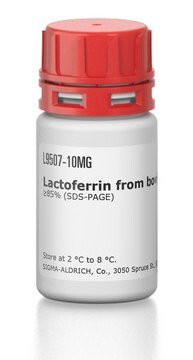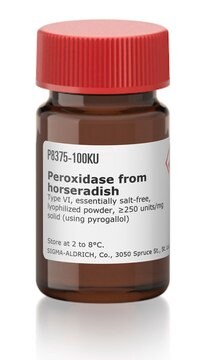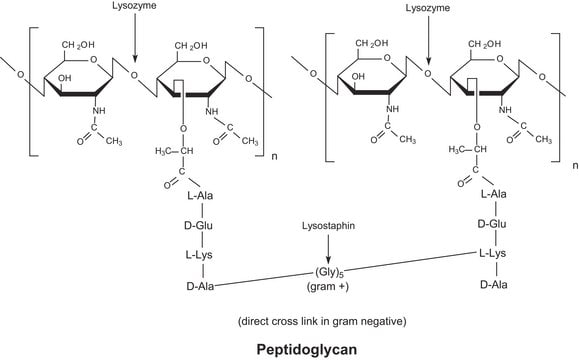G3643
α1-Acid Glycoprotein from bovine plasma
≥99%
Sinonimo/i:
Orosomucoid
About This Item
Prodotti consigliati
Origine biologica
bovine plasma
Saggio
≥99%
Forma fisica
powder
tecniche
electrophoresis: suitable
mass spectrometry (MS): suitable
N° accesso UniProt
Temperatura di conservazione
2-8°C
Informazioni sul gene
bovine ... ORM1(497200)
Cerchi prodotti simili? Visita Guida al confronto tra prodotti
Descrizione generale
Applicazioni
- in mass spectrometry analysis to confirm the presence of Neu5Ac and Neu5Gc distribution in human and bovine AGP respectively
- for pretreating the microvessel before perfusing the MDA-MB-231 cells for tumor adhesion studies
- in the composition of tear model
- as a reference in sodium dodecyl sulphate-polyacrylamide gel electrophoresis (SDS-PAGE)
Azioni biochim/fisiol
Codice della classe di stoccaggio
11 - Combustible Solids
Classe di pericolosità dell'acqua (WGK)
WGK 3
Punto d’infiammabilità (°F)
Not applicable
Punto d’infiammabilità (°C)
Not applicable
Dispositivi di protezione individuale
Eyeshields, Gloves, type N95 (US)
Certificati d'analisi (COA)
Cerca il Certificati d'analisi (COA) digitando il numero di lotto/batch corrispondente. I numeri di lotto o di batch sono stampati sull'etichetta dei prodotti dopo la parola ‘Lotto’ o ‘Batch’.
Possiedi già questo prodotto?
I documenti relativi ai prodotti acquistati recentemente sono disponibili nell’Archivio dei documenti.
Articoli
The use of PNGase Fast denaturing buffer and enzyme yielded results similar to a conventional 20-hour protocol with overnight digest while reducing workflow time to about 1 hour with a 15-minute digest.
Il team dei nostri ricercatori vanta grande esperienza in tutte le aree della ricerca quali Life Science, scienza dei materiali, sintesi chimica, cromatografia, discipline analitiche, ecc..
Contatta l'Assistenza Tecnica.